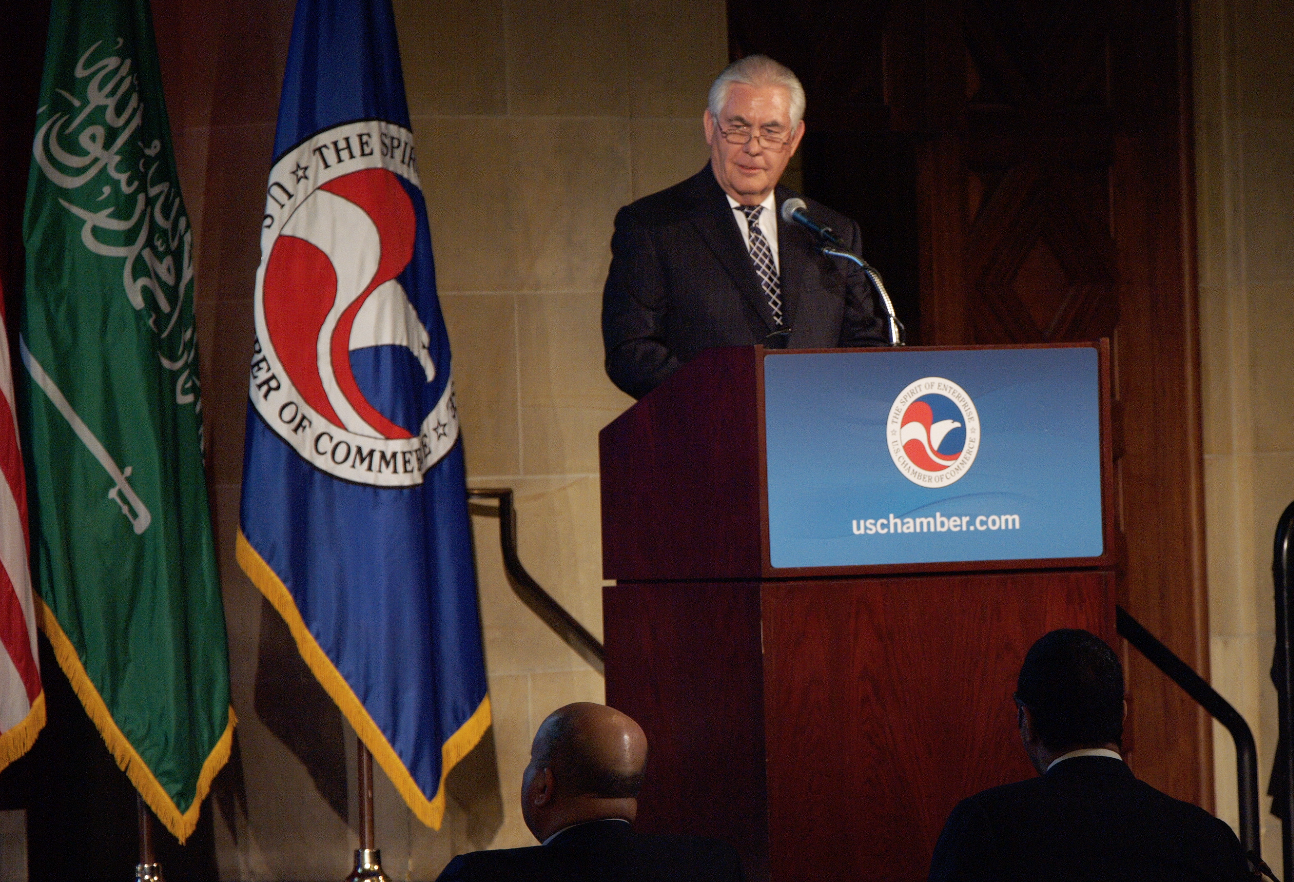Secretary of State Rex Tillerson gave his first on-the-record public speech as Secretary yesterday to the U.S.-Saudi Arabia CEO Summit, hosted by the U.S. Chamber of Commerce, the Saudi Committee for International Trade and the Council of Saudi Chambers of Commerce. The Secretary said that the U.S.-Saudi Relationship should be “taken to new heights” and that meetings between high-level officials and others since “show how the renewed depth and strength of our relationship is growing.”
“As for me, I’ve already had many opportunities to meet with Foreign Minister al-Jubeir. As we work together with Saudi Arabia on some of the most vexing problems confronting Middle East security and stability, we are very encouraged to find in the Saudi leadership a strong and steady partner on these issues as well as on the economic cooperation.”
The U.S.-Saudi CEO Summit is an ongoing series of high-level meetings between U.S. and Saudi private sector leaders, launched in 2014 following a MOU between the Council of Saudi Chambers and the Saudi Committee for International Trade (CIT) and the U.S. Chamber of Commerce. The first annual meeting was held in Riyadh in January 2016. Yesterday’s meeting, the first annual meeting of the U.S.-Saudi CEO Summit hosted at the U.S. Chamber, was attended by top U.S. and Saudi businessmen and women as well as government officials from both sides and standing room only media from dozens of national and international outlets.
In addition to Dr. Majed Al-Qassabi, H.E. Dr. Mohammed Al-Jaddan, Saudi Minister of Finance, Ghassan Al-Shibl, chairman of Saudi Arabian Airlines and CEO of Saudi Research and Marketing Group, and Khaled Al-Seif, vice chairman of CIT were in attendance for the event.
Secretary Tillerson spoke to the key elements of Saudi Arabia’s Vision 2030 that the United States was keen to support.
“We support Saudi Arabia’s 2030 plan that seeks to transform their economy and society. In particular, specific commitments to increase foreign ownership on listed companies; to boost the women’s workforce participation rate from 22 percent to 30 percent; to augment the private sector’s contribution to GDP from 40 percent to 65 percent; to move to free market pricing in place of subsidies in energy; to raise the share of non-oil exports from 16 percent to 50 percent of non-oil GDP; and to increase dramatically the capacity and quality of the health and education sectors through substantial capital investment.”
Full text of Secretary Tillerson’s speech is available here at this link.









